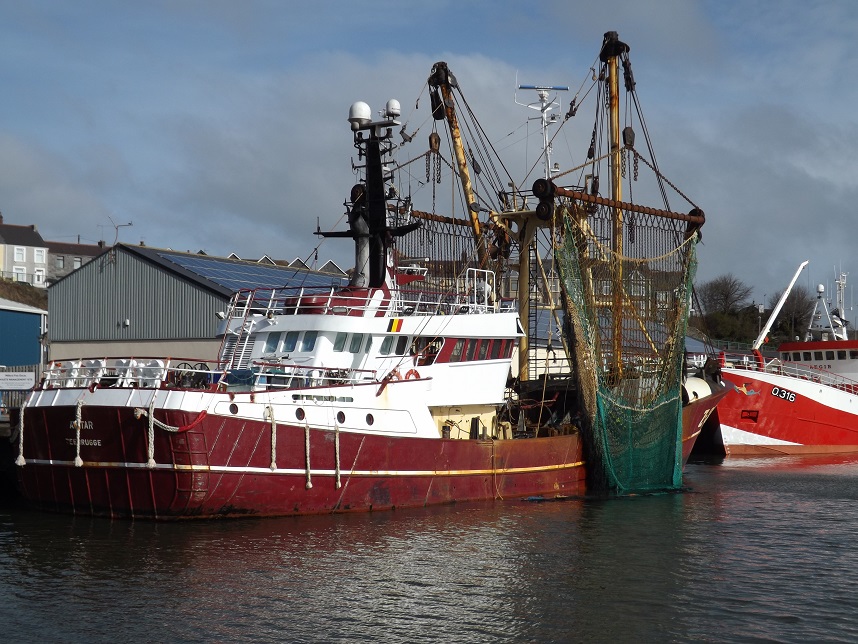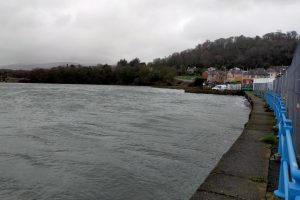A FISHING INDUSTRY leader said he felt “angry, disappointed and betrayed” by the post-Brexit trade deal agreed by Boris Johnson, which he warned would force some firms out of business.
Barrie Deas, the chief executive, said that there was growing disappointment and frustration in the industry – with many fishers furious that EU boats will be able to fish up to six miles off the coast of Britain.
Andrew Locker, chairman of the National Federation of Fishermen’s Organisations (NFFO), added to the criticism, and said many fishing businesses would be “absolutely worse off by this deal”
Mr Locker who himself runs two boats said: “I don’t know how the hell we’re going to get through 2021. We used to swap the quota we didn’t want with the French and Germans didn’t want. That enabled us to put together a fishing plan. This year we’re going to be woefully short of the amount of saithe, hake and cod we can catch. I am angry, disappointed and betrayed.
There is anger that the “marginal” gains on the share of fish that the UK fleet will be allowed to catch may be outweighed by the end of the system of quota-swapping, which has until now enabled deals to be made between British boats and their European counterparts on mainland Europe.
This is despite The Cabinet Office minister, Michael Gove saying this week that the UK had struck the “best possible” deal for the UK fishing industry, as a whole.
Gove argued that at present British fishermen were entitled to about half the fish in UK waters but by 2026 this will increase to two-thirds.
The agreement, released on Boxing Day morning, contains numerous pages dedicated entirely to fishing policy in the UK and EU’s new relationship, and asserts the “sovereign rights” of EU states and the UK “for the purpose of exploring, exploiting, conserving and managing the living resources in their waters”.
However it also includes a line on “the social and economic benefits of a further period of stability, during which fishers would be permitted until June 30 2026 to continue to enter the waters of the other party”.
Mr Locker said he was not aware of any allowance in the trade deal for UK firms to trade fish quotas with EU countries, which is a crucial part of how the industry manages its catch.
He said many fishing firms would go out of business by the end of the transition in 2026, telling the BBC Radio 4 Today programme: “We are really, really going to struggle this
Mr Locker added: “When Boris Johnson and his government promised Brexit to the fishermen, he promised none of us would be worse off. And I can sit here now and tell you there is a considerable amount of fishing industry representatives and people, fishermen, small families, small communities, absolutely worse off by this deal.”
He said UK negotiators had won a “fraction” of the fishing quotas they had promised and warned about the prospect of having to revisit the deal when the transition period ends in 2026, describing it as a “can of worms”.
“When we were within the EU we used to trade fish with the EU and we used to swap fish that we didn’t use with fish they didn’t use, and that enabled us to put together an annual fishing plan,” he said. “What we’ve got now is a fraction of what we were promised through Brexit, a fraction of the fish we need to fish our annual fisheries plan through Brexit.”
A senior member of the UK’s negotiating team defended the agreement, and described fish as “one of the areas where we had to compromise somewhat”, but said this had been done by “both sides”.
The official said: “The crucial thing on fisheries policy is that although there is a transition, at the end of the transition it returns to normal arrangements, and we have full control over our waters.
“There’s a transition to that point and ideally we would’ve got out of it a bit faster, but where we’ve got to is acceptable and offers gains for the fisheries industry in the short run and a huge right to control everything and work within that after this five-and-a-half-year transition.”

















